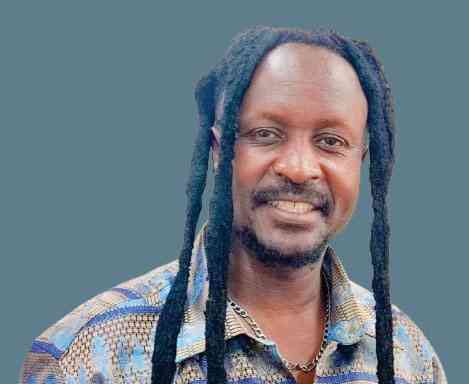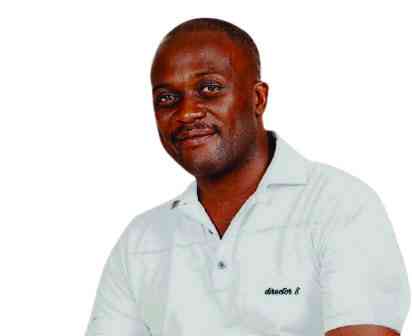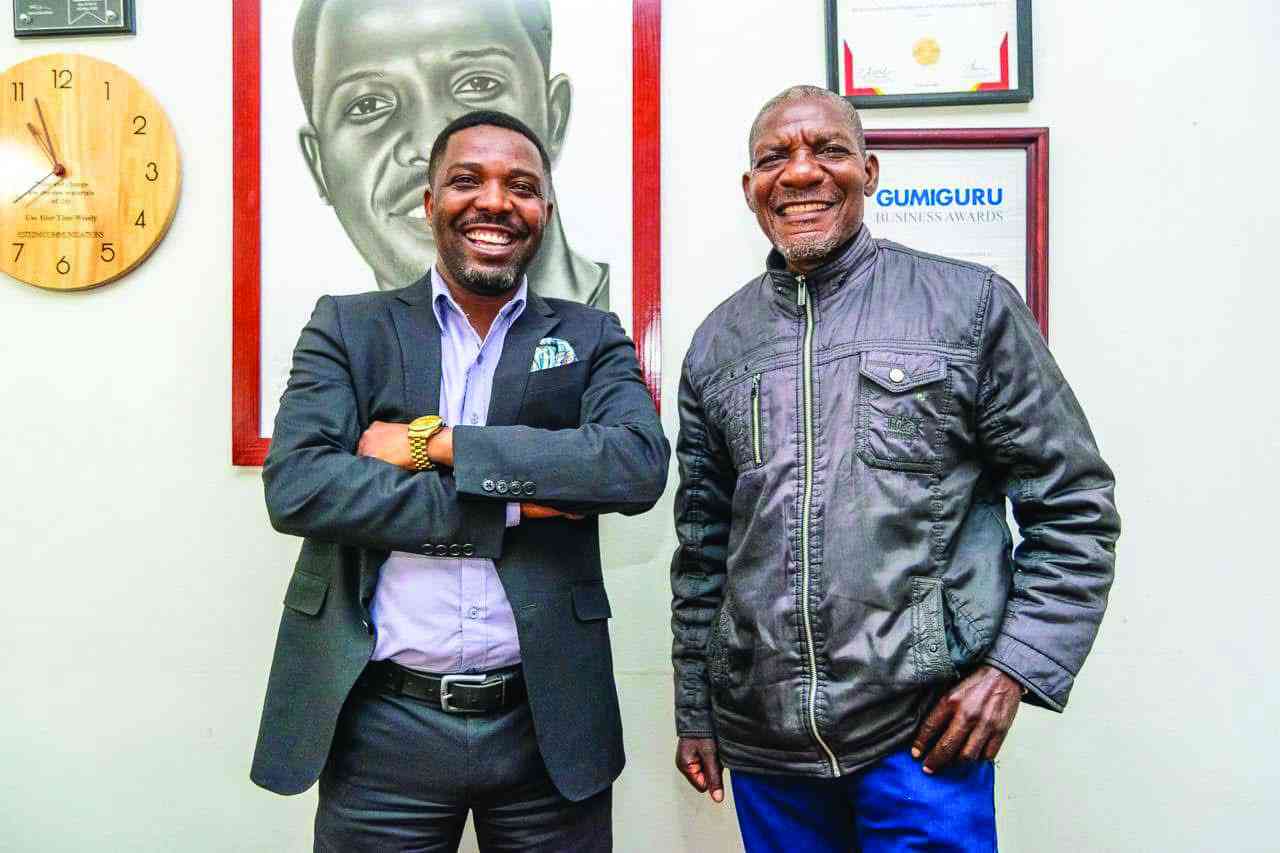
Veteran theatre producer and actor Silvanos Mudzvova has bemoaned the use of “colonial pieces” of legislation such as the Censorship and Entertainment Control Act, saying it stifles artistic creativity.
BY WINSTONE ANTONIO
Mudzvova was speaking to The Standard Style after his arrest last Wednesday outside Parliament building for staging a one-man play titled, Missing Diamonds, I Need My Share. He said he was moved by revelations made recently by President Robert Mugabe that the country had lost $15 billion raised from diamond revenue.

Police also arrested Alpha Media Holdings reporter Winstone Antonio and photographer Shephered Tozvireva and a photographer from the Daily News, although they were later released without any charges.
In was in the midst of Mudzvova’s performance that he was dragged by two police officers to a guard room at Parliament building and was later taken to Harare Central Police Station, where he was released after five hours without a charge.
The actor said in a free and democratic country, government was supposed to protect artists, not intimidating them. He said government was using archaic laws enacted to oppress black artists by the white regime led by Ian Smith.
“After the late vice-president Simon Muzenda’s poetry performance taken from the novel Feso, the Ian Smith regime enacted a censorship law in 1967 to deal with protest artists,” he said.
“Surprisingly, after independence, the Zanu PF government continued to use the same Censorship and Entertainment Control Act to oppress artists in modern-day Zimbabwe. “When artists started to protest over poor governance and fighting for human rights, government used the same Act enacted by Ian Smith. Several art works have been banned in Zimbabwe and we are saying that this must come to an end.”
- Chamisa under fire over US$120K donation
- Mavhunga puts DeMbare into Chibuku quarterfinals
- Pension funds bet on Cabora Bassa oilfields
- Councils defy govt fire tender directive
Keep Reading
Mudzvova said it was high time theatre plays were taken to the streets, where most of the affected people are found. He added that he was going to continue showing his creativity by making productions inspired by day-to-day incidences in a way that is both entertaining and educating.
“Theatre to me is a way of expressing the will of the people without fear,” he said.
“I have performed social plays in theatres for the past 15 years and parliamentarians do not show up, so I decided to take the play to their door-step so that they could watch as they entered the Parliament building.
“The time has come to call for the repelling of the draconian law in the country. The Act has become irrelevant and useless in Zimbabwe. In the new Constitution, freedom of expression is guaranteed, yet the Censorship and Entertainment Control Act is taking away that freedom.”
Mudzvova said he had been arrested on several occasions and detention had strengthened him in his mission to stand up for human rights and respect for the rule of law in the country.
This is not the first time Mudzvova has showed his artistic creativity on a topical issue. In 2014 he released a satire film Kumasowe that chronicles the battering of several riot police officers who had accompanied Apostolic Christian Council of Zimbabwe president Johannes Ndanga to affect a ban on a Johane Masowe eChishanu apostolic sect in Budiriro.
In 2011, he came up with a play titled The Confessor which tackled political violence inspired by “a startling admission” by a chief in Zaka that he actually “played a part in the violence that rocked his area during the June 27 2008 presidential election run-off”.
The veteran actor also made headlines in 2007 when he was arrested after the launch of his play Final Push, which was seen as a veiled instigation for people to oust the Zanu PF regime.
In 2010, he was at it again as he planned a one-man demonstration in Harare’s central business district through which he intended to send the message that public officers should declare their assets before taking office. However, the demonstration was not cleared by police.
Born in 1978 in Gutu, Masvingo, Mudzvova — a graduate of the Central School of Speech and Drama in the United Kingdom — has participated in several theatre productions, including Waiting for the Constitution that was written by Stephen Chifunyise.
Meanwhile, local theatre practitioners have condemned the detention of Mudzvova, arguing that the arrest was symbolic of the larger debate about freedom of expression in the country.
Renowned theatre guru Daves Guzha said; “It is terrifying and sadly pathetic when you have an artist being harassed and his patriotic right to question misuse and openly admitted bad management by the number one citizen in the land being manhandled by a brazen force which is by and large also affected.”
Several other artists also took to social media platform Facebook to express their disappointment over Mudzvova’s arrest.
Internationally-acclaimed Zimbabwean poet-cum-writer Mbizo Chirasha said it was painful and there was need to respect artists by government.
Award-winning stand-up comedian Doc Vikela said Mudzvova’s arrest was shameful as humour and satire were essential to any democratic country, sharing the same sentiments with Chirasha that artists must be respected.
“We need to be respected as artists and if there is no respect, so where is the freedom and independence?” Doc Vikela asked.
The missing money from diamond revenue has already caused a storm in the National Assembly, with opposition MPs demanding a probe of top government officials believed to have amassed wealth under suspicious circumstances.
Highfield MP Erick Murai (MDC-T) said the missing revenue could have gone a long way in alleviating food shortages, adding each citizen could have received $1 155 if the money had been shared equally among the country’s 14 million citizens.
“$15 billion is a lot of money and I calculated it against the Zimbabwean population of 14 million people and discovered if we were to share that amount, each one of us would get $1 155,” he said.
“It is prudent that the issue must be investigated so that we cannot say that $15 billion just disappeared, and yet in this august House we have some people who own houses that are better than the hotels we stay in, and that is when we begin to suspect people.”
Mabvuku-Tafara MP James Maridadi (MDC-T), addressing a constituency feedback meeting last week in Mabvuku, threatened to take President Robert Mugabe to court over the missing money.
He said Mugabe owed the nation a convincing explanation on how the government failed to account for the money urging the country to rally behind him in the court action. “It is not normal, for a citizenry to remain quiet when the president admitted that $15 billion vanished from diamond sales,” Maridadi said.
“Service delivery is collapsing, civil servants have not been paid their bonuses, and local authorities are crumbling. Where is the $15 billion that could be helping the councils to repair roads?”











